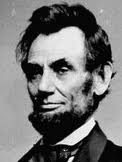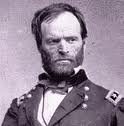 The Civil War Cotton Conspiracy became an issue, when Federal Revenue Agents determined to, follow the money. Money has always driven politics and politicians have always driven war. Before the Civil War, the south’s cotton crop represented nearly 70% of the United States exports, approaching $200 million a year. Eli Whitney’s cotton gin revolutionized this agricultural industry and thus perpetuated slavery in the agrarian aristocracy of the south. Many noble, humanitarian and patriotic issues lit the fuse of civil unrest, however business and power brokers, in and out of politics and media, identified a combination of means to a satisfactory resolve of emancipation, union and wealth.
The Civil War Cotton Conspiracy became an issue, when Federal Revenue Agents determined to, follow the money. Money has always driven politics and politicians have always driven war. Before the Civil War, the south’s cotton crop represented nearly 70% of the United States exports, approaching $200 million a year. Eli Whitney’s cotton gin revolutionized this agricultural industry and thus perpetuated slavery in the agrarian aristocracy of the south. Many noble, humanitarian and patriotic issues lit the fuse of civil unrest, however business and power brokers, in and out of politics and media, identified a combination of means to a satisfactory resolve of emancipation, union and wealth.
President Abraham Lincoln realized the numerous agendas, of the power elite, that backed his election in 1860. Lincoln, was not a fool, he knew that in order to save the Union and abolish slavery, he had to pacify the movers and shakers in Washington, in addition to the puppet masters of industry. Civil War Cotton, sold for gold and the Southern Insurgency used this wealth to buy munitions and other supplies to sustain its war of rebellion. Early on, a clandestine trade existed between the North and the South, however military leaders were losing patience with an enemy that was being financed by an industry that could be controlled. The advent of the Union blockade of the Southern ports and potential control of the Mississippi River and other Western water routes, allowed Union forces to constrict and enforce the illicit trade, identifying a Civil War Cotton Conspiracy and establishing policy in order to Follow the Money.
Cotton sold for ten cents a pound in the south and could be sold in the Northern States for seventy cents a pound. Gold, on the block, was the mode of exchange and professional traders were in a frenzy. Revenue Agents discovered trading permits being sold on the streets of New York. Government and military leaders were bribed to turn a blind eye, an agent in Memphis related how the military was being demoralized and in New Orleans, General “Beast” Butler’s brother was getting rich controlling the Cotton Conspiracy in Louisiana. The most profitable posting in the military, at the time, was a position of authority, at the docks, where seized cotton was loaded for shipment to Northern warehouses.
 All Union Generals of Military Districts, had the authority to issue trade licenses in their commands. General Ulysses S. Grant controlled the licensing in his district and was appalled at the corruption that resulted in the volatile and profitable market. Military commanders, of the day, were only as successful in their careers, as their benefactors in Congress, Business and the Media allowed them to be. They were a fickle lot and their support could change, depending on who was to follow the money.
All Union Generals of Military Districts, had the authority to issue trade licenses in their commands. General Ulysses S. Grant controlled the licensing in his district and was appalled at the corruption that resulted in the volatile and profitable market. Military commanders, of the day, were only as successful in their careers, as their benefactors in Congress, Business and the Media allowed them to be. They were a fickle lot and their support could change, depending on who was to follow the money.
Congressman Elihu B. Washburne, an early supporter, confidant and advisor to President Lincoln, mentored General Grant and advised him on favorable policy and political tact. All of the General’s missives, communications and written directives were normally reviewed and vetted by, his alter ego, Adjutant John A. Rawlins. Grant’s infamous General Order No. 11, expelling all Jews from his Tennessee Command, would never had been allowed by Rawlins, but could have been solicited and encouraged by his benefactor, Elihu B. Washburne. Ulysses S. Grant shot himself in the foot, with this unforgivable racial slur, that would follow him through eternity.
 General William Tecumseh Sherman, was a cotton magnet in his own right. This General did not wait for the “white gold” to come to him, he foraged deep into the heart of Dixie to confiscate it. What he couldn’t ship North, he burned and when he needed advice, his brother, Senator John Sherman, was on hand to promote and solicit favorable opinions on his siblings behalf. Sherman was a man who knew his limitations and had no patience with the peripheral intrigues of business and political ambitions.
General William Tecumseh Sherman, was a cotton magnet in his own right. This General did not wait for the “white gold” to come to him, he foraged deep into the heart of Dixie to confiscate it. What he couldn’t ship North, he burned and when he needed advice, his brother, Senator John Sherman, was on hand to promote and solicit favorable opinions on his siblings behalf. Sherman was a man who knew his limitations and had no patience with the peripheral intrigues of business and political ambitions.
It’s always the common man who bleeds and dies for the greater cause. In the case of the Civil War, the benefits resulted in Emancipation, Union Integrity and Wealth. The Cotton Conspiracy and the agents who would Follow the Money reminds one of a future President nearly 100 years later who addressed the Nation stating,
 “This conjunction of an immense military establishment and a large arms industry is new in the American experience. The total influence — economic, political, even spiritual — is felt in every city, every statehouse, every office of the federal government. We recognize the imperative need for this development. Yet we must not fail to comprehend its grave implications. Our toil, resources and livelihood are all involved; so is the very structure of our society. In the councils of government, we must guard against the acquisition of unwarranted influence, whether sought or unsought, by the military-industrial complex. The potential for the disastrous rise of misplaced power exists, and will persist.
“This conjunction of an immense military establishment and a large arms industry is new in the American experience. The total influence — economic, political, even spiritual — is felt in every city, every statehouse, every office of the federal government. We recognize the imperative need for this development. Yet we must not fail to comprehend its grave implications. Our toil, resources and livelihood are all involved; so is the very structure of our society. In the councils of government, we must guard against the acquisition of unwarranted influence, whether sought or unsought, by the military-industrial complex. The potential for the disastrous rise of misplaced power exists, and will persist.
We must never let the weight of this combination endanger our liberties or democratic processes. We should take nothing for granted. Only an alert and knowledgeable citizenry can compel the proper meshing of the huge industrial and military machinery of defense with our peaceful methods and goals so that security and liberty may prosper together.”
Dwight D. Eisenhower
Bummer


[…] So a brisk trade in southern cotton carried on even though the South tried to stop it by burning much of the cotton crop of 1862. Unfortunately, other than allowing northerners to continue to wear cotton, it did not have all the results Lincoln hoped for. The traders, mostly Copperheads, were soon making magnificent profits trading guns and supplies for raw cotton, despite several efforts by the government to control the trade. To learn more of the ins and outs of this trade read David Surdam’s paper Traders or Traitors: Northern Cotton Trading during the Civil War and also Civil War Cotton Conspiracy. […]
The cotton-industrial complex? Well, Lincoln did have to finance the war effort.
Louis,
Maybe a stretch, but have been looking to get Ike’s lame duck speech in for a long time. Still waiting to insert his opinion of Nixon as a President. “Doesn’t have the Presidential timber.” Great line “Cotton Industrial Complex.” Thanks,
Bummer
No wonder Nixon once said of Ike, “He could be so genial and so cold.” Personally, I prefer Harry Truman’s typically blunt statement about Tricky Dick: “If he ever got caught telling the truth he’d tell two lies to make up for it.”
Louis,
Bummer feels so blessed to have experienced the Nixonian political era at his many levels of incompetance. His staff’s brilliance and stealth cannot be surpassed. What it prepared this “old guy” for was the future politicians that have really perfected the old “Tennessee Two-Step” and not speaking of a looseness of the bowels.
Bummer